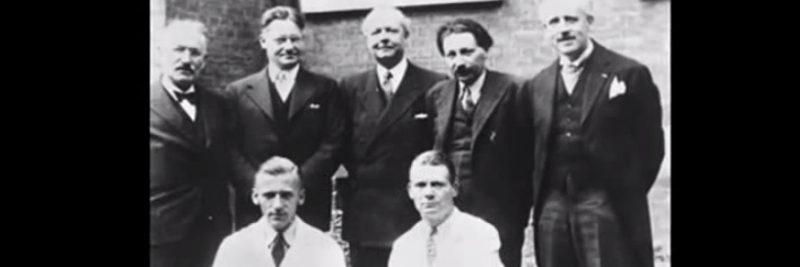Sir Alexander Fleming knew for a long time that there was no reason for the soldiers who fought in World War I to be dying from terrible diseases that they contracted out on the front lines. Born in Scotland in the late 19th century, he wrote numerous papers about immunology, chemotherapy, and bacteriology up until the time of his death. His goal was to eliminate sepsis in deep wounds, but what he would invent would change the world.
“When I woke up just after dawn on September 28, 1928, I certainly didn’t plan to revolutionize all medicine by discovering the world’s first antibiotic, or bacteria killer,” Fleming is quoted as saying. He ended up doing just that.
How Alexander Fleming Saved Lives with his Inventions
Here is a look at Fleming’s inventions:
1. Penicillin
Most people will recognize Fleming’s name because it is well known that he invented the first antibiotic that could be used to fight off bacterial diseases. What many people don’t realize is that Fleming invited penicillin by accident. He’d stacked all his cultures up in a corner and then left on a holiday with his family. When he returned, a fungus had inhabited one of the trays and there weren’t any living bacteria left in the sample. For a fun fact, the first actual name for penicillin was actually “mold juice.”
Penicillin is still one of the most widely prescribed antibiotics in medicine because the antibacterial substances that the mold releases is one of the most efficient methods of eradicating harmful bacteria from the human body. With the invention, everything from scarlet fever to bacterial meningitis suddenly had a cure.
2. Lysozyme
Did you know that eating egg whites does more than just provide you with a low fat breakfast? Lysozyme, and enzyme that breaks down bacterial cell walls, is found in abundance in egg whites and it can even be found in the human genome. Fleming found that by adding more of this enzyme to the diets of people, especially infants, that children would be more resilient to disease during their early fundamental years of development.
Too much lysozyme in the human body is a bad thing, however, because it can lead to lower levels of blood potassium and even kidney failure in extreme cases. You won’t reach harmful levels by eating egg whites every day for breakfast, but certain cancers can produce excess levels of this enzyme.
3. Bacterial Resistance
Right after the invention of penicillin, Fleming noticed that antibiotic resistance was a major problem during his early experiments. When the antibiotic was used in too weak of a dose or for too brief a time, the bacteria would develop fighting powers against the drug. He spoke at great length about only using the antibiotic for proven cases of bacterial infection and then to use the proper doses so that the threat of resistance could be minimized.
There were predictions before Fleming’s observations that this resistance would occur, particular with Almroth Wright, but Fleming was the first to confirm that this was a real problem.
Strong proponent of individual liberty and free speech. My goal is to present information that expands our awareness of crucial issues and exposes the manufactured illusion of freedom that we are sold in America. Question everything because nothing is what it seems.




















